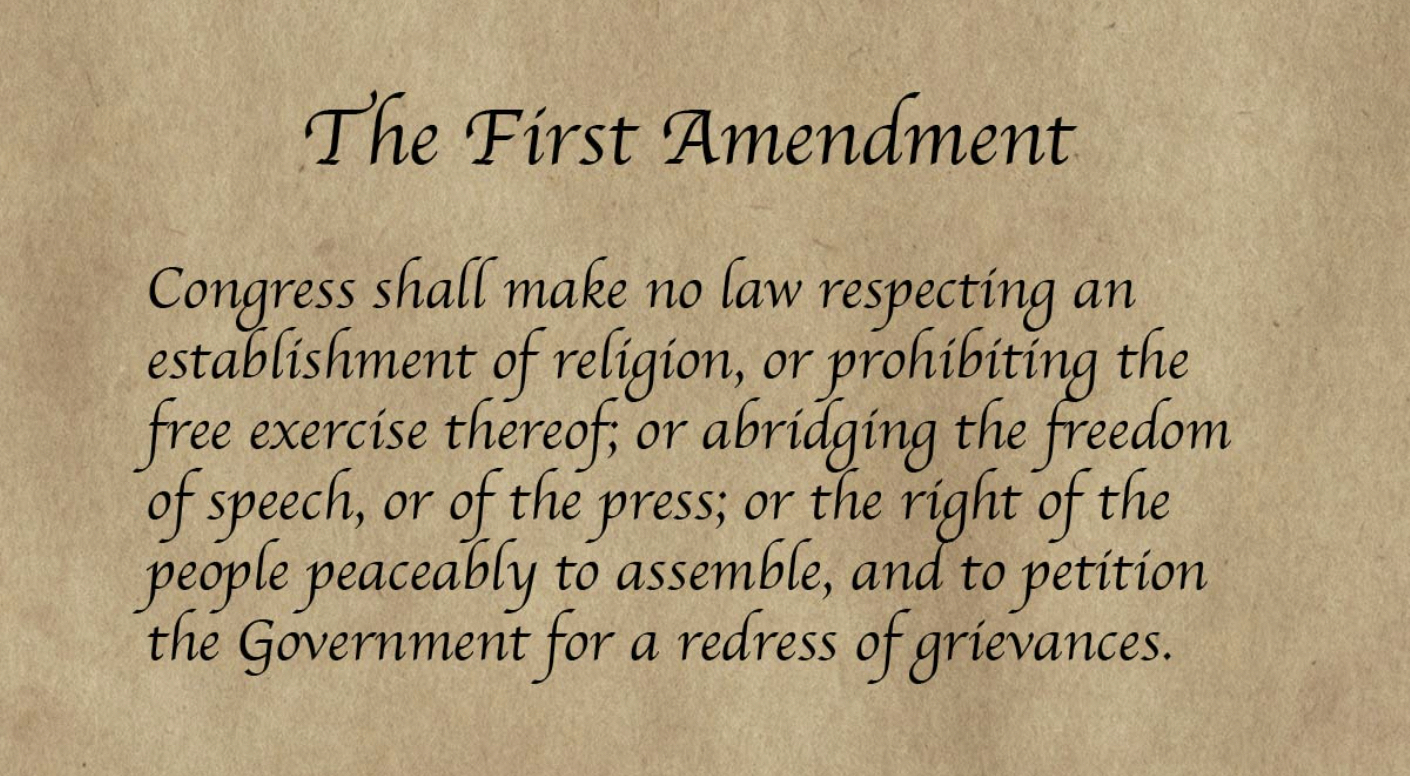
Why is the First Amendment first and not second or third?
Why is the Freedom of Relgion first in this First Amednment?
We are one nation under God,
but I tell you,
if we do not have God we will become one nation under.
Here are The Five Freedoms that Citizens in these United States are guaranteed.
The Freedom of Religion
READ THESE WORDS CAREFULLY
The government of the United States
may not impose nor place a
“State Religion”
The government of the United States
may not impose nor place
undue restrictions on religious practices,
AND
The government of the United States
must recognize the Rght of the People to believe in and worship,
as their conscience dictates. There are some restrictions.
More to come on this right in the near future
The Right to Free Speech
In the First Amendment the very first and sometimes only freedom most people think about is the Freedom of Speech.
So, what does the First Amendment say about:
Freedom of Speech?
Can speech be restricted, and if so, when?
The answer is a BIG YES.
Despite what some people believe.
You Do Not Have The Right To Say
What You Want
and
When You Want.
But we do have freedom of speech.
My last two sentences are exactly why we have three systems of Government.
More to come on this right in the near future
Freedom of the Press
The freedom to write and publish can be more powerful than speech.
This could include an article, a sign, advertisement, a poster, a book or the latest news articles and more.
The pen is said to be mightier than the sword.
And many people have said things and then are asked to put it in writing.
WHY?
Almost all legal actions are written on paper and now a days to include the computer.
But this freedom again like speech, comes with many restrictions. Speech, written form, drawings and artistic forms can all be rendered back to the
“First Amendment.”
More to come on this right in the near future
The Right to Assemble
Our right to gather in a peaceful public protest such as at a rally or to march on a road meeting certain requirements and/or other gatherings and assemblies of protest is a fundamental right granted to U. S. Citizens.
This is the right of all United States Citizens and warrants by this admenment to be the fundamental core of our freedoms that makes our country so different and covetous to the rest of the world.
Government officials in other countries our fearful of having a first admendment. They fear that they cannot control the peoplewithout losing control themselves of the government. Many rouge governments have siffled their people from protesting and expressing themselves that could result or create a disturbance, riot or possibly even offend someone?
This part of our first amendment protects your right to assemble with certain exceptions.
Here are a few.
#1 Is there a proven danger of imminent harm,
#2 Will it interfere with other rights such as traffic?
These questions can be answered by our three tier government, not just judges such as the supreme court, but they can be addressed by the legislative branch and the executive branch.
After all it was the legislative branch that wrote these amendments and the executive branch that ensures they get followed.
Nonetheless the rights of the people must be respected.
More to come on this right in the near future
The Right to Petition
Our constitutional republic form of government would not be free if we were not able to petition our own government.
Imagine, voting for a person to represent you and then not listen to what you want, or to make new laws that a represent the needs of the people or to change or withdraw laws of the same.
And if they don’t listen to your petition then you have the right to vote them out of office.
Those who refuse to vote have no place in our government.
I don’t mean that they cannot live here, but their role as a citizen to vote is as equally as important as a law maker to do their job, and that is to make laws by listening to their constituents (We The People).
We have the right to PETITON our government and we ought to utilize that right when the need arises.